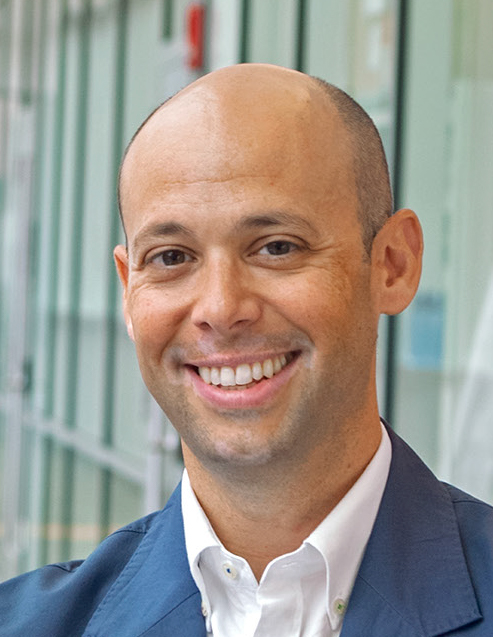Dana-Farber Cancer Institute's Lynch Syndrome Center Conference: Identification & Management of Lynch Syndrome in Clinical Practice
Description
This conference will educate attendees on state-of-the-art approaches to managing individuals with known or suspected Lynch syndrome, a common, inherited form of cancer predisposition. Topics covered in this conference will include details about identifying and diagnosing Lynch syndrome in routine practice, endoscopic management of individuals with Lynch syndrome, gynecologic care and risk reduction, as well as immune-based cancer prevention strategies.
An estimated 1 in 300 people has Lynch syndrome in the United States, yet 95% of those affected are unaware. Lynch syndrome is the most common form of hereditary colorectal and uterine cancer and accounts for about 2 to 4% of cases of these cancers. Individuals with Lynch syndrome are also at significantly increased risk for various other cancers, including ovarian, stomach, small bowel, pancreatic, biliary tract, urinary tract, prostate, and skin cancers. Individuals with Lynch syndrome typically require multidisciplinary management from healthcare provider across various diverse specialties, including gastroenterology, gynecology, dermatology, and surgical oncology and others.
Target Audience
This activity is intended for Physicians, Physician Assistants, Nurses, Nurse Practitioners, Genetic Counselors from a diverse array of specialties, including oncology, gastroenterology, primary care, OBGYN, and surgery.
Learning Objectives
Upon completion of this activity, participants will be able to:
- Recognize contemporary approaches to identifying individuals with Lynch syndrome in routine care, including approaches to genetic testing/interpretation and family communication.
- Demonstrate evidence-based approaches to cancer prevention in Lynch syndrome, including endoscopic, surgical, and medical management, as well as novel approaches to immune-based prevention.
- Integrate knowledge about gene-specific Lynch syndrome cancer risks into personalized cancer prevention approaches for individuals with Lynch syndrome.
- Demonstrate the multi-disciplinary aspects of a Lynch syndrome care team – including MD’s, PA’s, NP’s, nurses, genetic counselors who specialize in oncology, gynecology, endoscopy, and gastroenterology – for an individual’s Lynch syndrome prevention and management.
Additional Information
Dana-Farber Cancer Institute & Mass General Brigham

8:00 am | Introduction | Sapna Syngal, MD, MPH |
8:15 | Identifying Lynch Syndrome in Day-to-Day Practice | Matt Yurgelun, MD |
8:35 | Q&A Session | Matt Yurgelun, MD |
8:45 | Keynote Presentation: Findings from the Ohio Colorectal Cancer Prevention Initiative | Heather Hampel, MS, LGC |
9:05 | Q&A Session | Heather Hampel, MS, LGC |
9:15 | Endoscopic Management and Chemoprevention for Individuals with Lynch Syndrome | Ramona Lim, MD |
9:35 | Q&A Session | Ramona Lim, MD |
9:45 | Break | |
9:55 | Gynecologic Cancer Risk-Reduction in Lynch Syndrome | Colleen Feltmate, MD |
10:15 | Q&A Session | Colleen Feltmate, MD |
10:25 | Gene Specific Nuances and Screening for Less Common Cancers in Lynch Syndrome | Leah Biller, MD |
10:45 | Q&A Session | Leah Biller, MD |
10:55 | Break | |
11:05 | Keynote Presentation: Cancer Immune Interception in Lynch Syndrome | Eduardo Vilar-Sanchez, MD, PhD |
11:35 | Q&A Session | Eduardo Vilar-Sanchez, MD, PhD |
11:45 | Lynch Syndrom Center Resources & Closing Remarks | Matt Yurgelun, MD |
12:00 PM | Adjournment | |

Matt Yurgelun, MD - Course Director
Director,
Lynch Syndrome Center;
Medical Oncologist, Division of Cancer Genetics and Prevention,
Medical Oncologist, Gastrointestinal Cancer Center,
Dana-Farber Cancer Institute;
Assistant Professor of Medicine,
Harvard Medical School
Dr. Yurgelun is a gastrointestinal medical oncologist and Senior Physician at the Dana-Farber Cancer Institute, affiliated with both the Gastrointestinal Cancer Center and the Center for Cancer Genetics & Prevention. He has served as Director of the Dana-Farber Lynch Syndrome Center since its launch in 2019. He previously served as the national President of the Collaborative Group of the Americas on Inherited Gastrointestinal Cancers and he serves on the National Comprehensive Cancer Network’s Clinical Practice Guidelines Panels for both Colorectal Cancer Genetics and Breast, Ovarian, and Pancreatic Cancer Genetics.

Anu Chittenden, MS, LGC
Manager, Genetic Counseling,
Dana-Farber Cancer Institute
Anu Chittenden, MS, LCGC, is a Senior Genetic Counselor and Lead Genetic Counselor for the Lynch Syndrome Center at Dana-Farber Cancer Institute in Boston, MA. She joined Dana-Farber in 1996 and has worked in many different areas of genetic counseling, including early family studies research on hereditary breast cancer, expanding genetic services to pancreatic cancer patients, and promoting awareness of Lynch syndrome. She has a special interest in Lynch syndrome and gastrointestinal cancer genetics.

Colleen Feltmate, MD
Director of Minimally Invasive Gynecology Oncology,
Fellowship Director Gynecology Oncology,
Brigham and Women’s Hospital
Dr. Feltmate is an Assistant Professor of Obstetrics, Gynecology and Reproductive Biology at Harvard Medical School and a Gynecologic Oncologist at Brigham & Women’s/Dana-Farber Cancer Center. Her research interests center on outcomes research and Quality improvement initiatives. She is the Director of Minimally Invasive Surgery and the Fellowship in Gynecologic Oncology. She was named as a Top Doctor in Boston Magazine for 2022 and has been a member of our Lynch syndrome care team for many years.

Heather Hampel, MS, LGC
Associate Director, Division of Cancer Genomics,
Professor, Department of Medical Oncology & Therapeutics Research,
City of Hope National Medical Center
Heather is a Professor in the Department of Medical Oncology and Therapeutics Research and Associate Director of the Division of Cancer Genomics at City of Hope National Cancer Center. Her research focuses on Lynch syndrome and universal tumor screening for Lynch syndrome. She has >170 publications on the prevalence of Lynch syndrome among colorectal and endometrial cancer patients, the best testing protocols, cost-effectiveness, and referral guidelines for cancer genetics. She was on the Board of Directors for the American Board of Genetic Counseling from 2006-2011, serving as President in 2009 and 2010. She has been on the Steering Committee of the National Colorectal Cancer Roundtable since 2016. She was on the Council of the Collaborative Group of the Americas on Inherited Colorectal Cancer from 2016-2019, serving as president in 2017-2018. She was just elected Secretary/Treasurer Elect of the National Society of Genetic Counselors with her term starting in 2021.

Melissa Leach, MS, LGC
Genetic Counselor,
Division of Cancer Genetics and Prevention,
Dana-Farber Cancer Institute
Melissa received her Master of Science degree in Genetic Counseling from the Icahn School of Medicine at Mount Sinai in 2017. She joined the Center for Cancer Genetics and Prevention at DFCI in 2017. She provides genetic counseling services to adult patients across a wide range of specialties, such as breast cancer, colorectal cancer, and ovarian cancer. Melissa has particular interest in improving access to genetic counseling services in suburban/rural areas and cascade testing.

Ramona Lim, MD
Director of Endoscopy,
Lynch Syndrome Center;
Co-Director, Onco-Gastroenterology Program,
Division of Gastroenterology,
Brigham and Women’s Hospital;
Division of Cancer Genetics and Prevention
Dana-Farber Cancer Institute
Dr. Lim is a gastroenterologist in the Division of Cancer Genetics and Prevention at Dana-Farber Cancer Institute and the Division of Gastroenterology at Brigham and Women’s Hospital. She serves as the Director of Endoscopy for the Lynch Syndrome Center at Dana-Farber and the Co-Director of the Onco-Gastroenterology Program at Brigham and Women’s.

Leanne McAuliffe, MHA
Program Manager,
Lynch Syndrome Center;
Division of Cancer Genetics and Prevention,
Dana-Farber Cancer Institute
Leanne received her Master of Healthcare Administration from Suffolk University in 2019 and joined Dana-Farber Cancer Institute as the first Program Manager for the Lynch Syndrome Center. She serves as the administrative face of the Center by providing administrative support and coordination for all aspects of Lynch syndrome patient care, while developing and implementing regional and national community-oriented programming to increase awareness and provide education and support.

Sapna Syngal, MD, MPH
Founder,
Lynch Syndrome Center;
Director of Research, Division of Cancer Genetics and Prevention,
Dana-Farber Cancer Institute;
Professor of Medicine,
Harvard Medical School
Dr. Sapna Syngal, MD, MPH is the Leader of the Cancer Risk, Prevention, and Early Detection Program in the Dana-Farber/Harvard Cancer Center, Director of Strategic Planning for Prevention and Early Cancer Detection at Dana-Farber Cancer Institute, Director of Research in the Division of Cancer Genetics and Prevention at Dana-Farber Cancer Institute, and Professor of Medicine at Harvard Medical School. She has established an internationally recognized clinical, research, and educational program devoted to the genetics, early detection and prevention of cancer.
Dr. Syngal’s research interests began in the field of inherited gastrointestinal cancers, including Lynch syndrome and inherited pancreatic cancer, where her lab has made seminal contributions to identifying new methods of identifying individuals and families at high risk of cancer and screening for cancers at their earliest stages using novel technologies and biomarkers. A related focus of her work has been to increase access to genetic testing, with a focus on increasing testing and cancer screening among disadvantaged populations. She is the developer of the PREMM models, which are widely used for risk assessment for inherited cancer, the founder of the Lynch Syndrome Center at Dana-Farber Cancer Institute, and the Principal Investigator of the GENERATE study, funded as part of a Stand Up 2 Cancer and Lustgarten Foundation Pancreatic Cancer Interception Dream Team project.

Eduardo Vilar-Sanchez, MD, PhD
Associate Professor and Deputy Chair,
Clinical Cancer Prevention,
The University of Texas MD Anderson Cancer Center
Dr. Vilar-Sanchez is Associate Professor and Deputy Chair of the Department of Cancer Prevention at MD Anderson Cancer Center. He is a physician-scientist and a medical oncologist with clinical expertise in hereditary colorectal cancer syndromes and colorectal medical oncology. His research is focused in developing novel chemopreventive interventions and early detection methods for patients at high-risk for colorectal cancer development. To accomplish this goal, his laboratory has characterized the genomic and transcriptomic landscape of premalignant polyps and identified new drug targets. In parallel, his team has applied this same workflow to genetically engineered mouse models that mimic the natural history of hereditary colorectal cancer syndromes to perform cross-species comparisons and validate these novel preventive agents and biomarkers in vivo. The Vilar-Sanchez laboratory has teamed with other groups to develop ex vivo models that better recapitulate the biology of normal mucosa and premalignancy. Finally, Dr. Vilar-Sanchez has designed, implemented and participated in several investigator-initiated clinical trials that have been funded by the NCI through the N01 Chemoprevention Consortium for early drug development in cancer prevention (Phase IB testing Naproxen in Preventing DNA Mismatch Repair Deficient Colorectal Cancer in Patients With Lynch Syndrome; and Erlotinib Hydrochloride in Reducing Duodenal Polyp Burden in Patients With Familial Adenomatous Polyposis at Risk of Developing Colon Cancer) as well as industry-sponsored trials (Phase IB of the IL-17 inhibitor Guselkumab in Familial Adenomatous Polyposis; and Phase II of Nivolumab in Preventing Colon Adenomas in Participants With Lynch Syndrome and a History of Partial Colectomy).
In support of improving patient care, Mass General Brigham is jointly accredited by the Accreditation Council for Continuing Medical Education (ACCME), the Accreditation Council for Pharmacy Education (ACPE), and the American Nurses Credentialing Center (ANCC), to provide continuing education for the healthcare team
Credit Designations:
AMA PRA Category 1 CreditTM
Mass General Brigham designates this live activity for a maximum of 3.5 AMA PRA Category 1 CreditsTM. Physicians should claim only the credit commensurate with the extent of their participation in the activity.
Nursing
Mass General Brigham designates this activity for 3.5 Nursing contact hours. Nurses should only claim credit commensurate with the extent of their participation in the activity.
Physician Assistants Mass General Brigham has been authorized by the American Academy of PAs (AAPA) to award AAPA Category 1 CME credit for activities planned in accordance with AAPA CME Criteria. This activity is designated for 3.5 AAPA Category 1 CME credits. PAs should only claim credit commensurate with the extent of their participation.
Mass General Brigham has been authorized by the American Academy of PAs (AAPA) to award AAPA Category 1 CME credit for activities planned in accordance with AAPA CME Criteria. This activity is designated for 3.5 AAPA Category 1 CME credits. PAs should only claim credit commensurate with the extent of their participation.
Genetic Counselor CEUs
The National Society of Genetic Counselors (NSGC) has authorized Dana-Farber Cancer Institute to offer up to 0.3 CEUs or 3 Category 1 contact hours for the activity Dana-Farber Cancer Institute's Lynch Syndrome Center Conference: Identification & Management of Lynch Syndrome in Clinical Practice. The American Board of Genetic Counseling (ABGC) will accept CEUs earned at this program for the purposes of genetic counselor certification and recertification.
Lifelong Learning Maintenance of Certification (MOC) Program
American Board of Internal Medicine's (ABIM)
MOC COMPLETION CRITERIA
Participant completion for MOC points will only be reported to the boards at the conclusion of the series (June 2023).
MOC points can only be awarded if you attended the entire hour session.
Please have your ABIM ID available when completing the survey for MOC points.
The survey is accessible through the evaluation.
Lifelong Learning MOC points in the American Board of Internal Medicine's (ABIM) Maintenance of Certification (MOC) Program
Upon successful completion of this activity, if you wish to receive MOC Part 2 points you will need to enter your ABIM ID number in the pre survey section. The Mass General Brigham Office of Continuing Professional Development will verify completion of activity and report to the ABIM. Your MOC credits will be available in your board profile by the end of the calendar year. If any data provided on this form is returned by the boards as incorrect, the Office of Continuing Professional Development will contact you by email to request the correct information. Diplomates are responsible for checking their ABIM Portfolio for confirmation of MOC Part 2 points.
MOC Recognition Statement
Successful completion of this CME activity, which includes participation in the evaluation component, enables the participant to earn up to 3.5 MOC points in the American Board of Internal Medicine’s (ABIM) Maintenance of Certification (MOC) program. It is the CME activity provider’s responsibility to submit participant completion information to ACCME for the purpose of granting ABIM MOC credit.
Available Credit
- 3.50 AAPA Category I CME
- 3.50 ABIM Medical Knowledge
- 3.50 AMA PRA Category 1 Credit™
- 3.50 Nursing Contact Hours
- 3.50 Participation
Price
| Registration Type | Rate |
|---|---|
Physicians | $100 |
Physician Assistants | $50 |
Nurse Practitioner | $50 |
Others | $50 |
Please contact Maxine Harney ([email protected]) for more information, or for assistance with registering. Thank you!

 Facebook
Facebook X
X LinkedIn
LinkedIn Forward
Forward